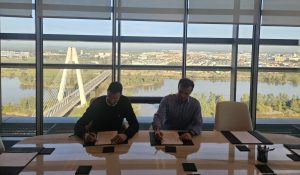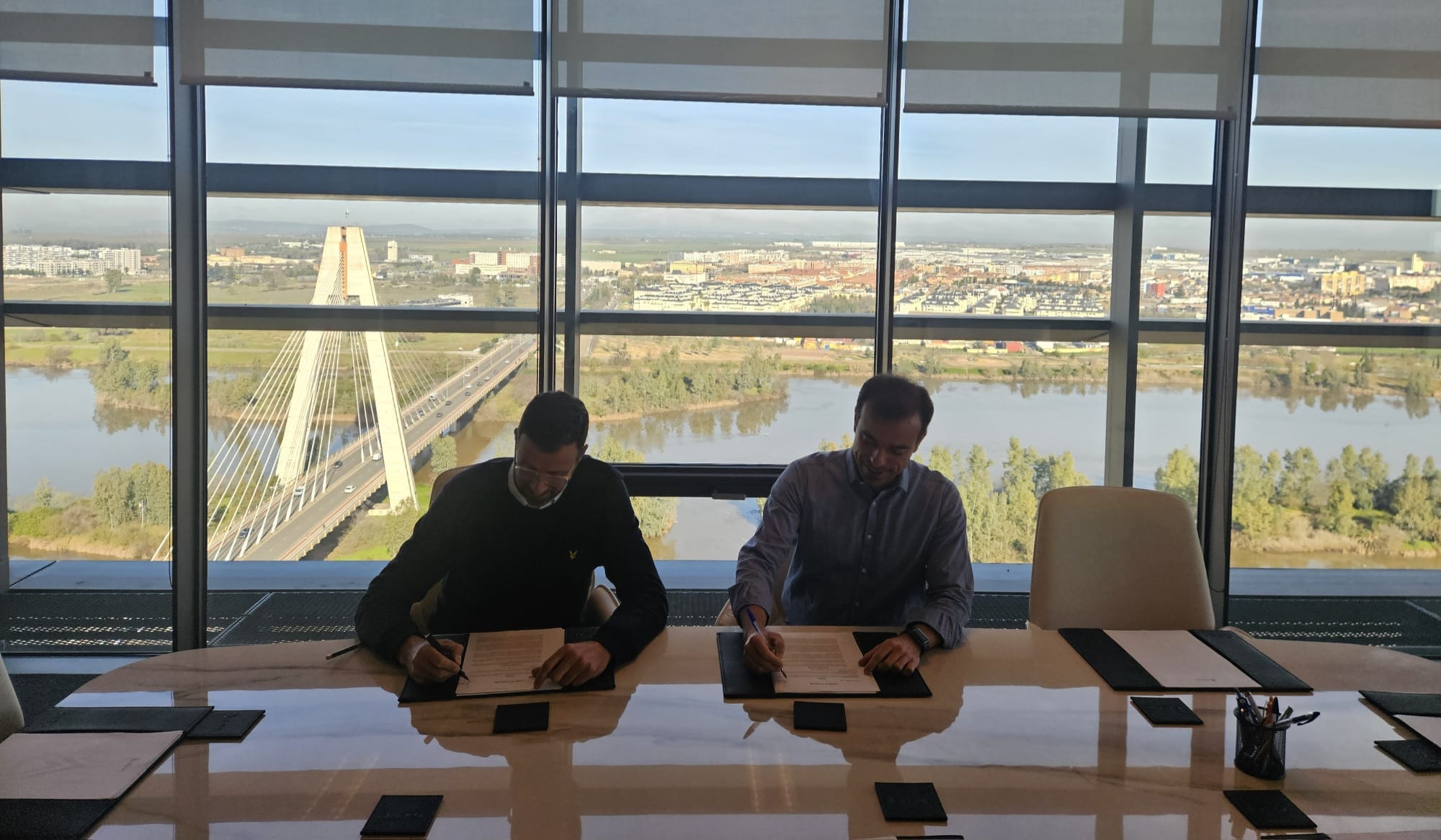It is a treasure that often ends up as pure waste. Tons of organic waste generated in agricultural and livestock farms or other types of waste, such as catering, hotels or cruise ships, whose treatment becomes an added expense and a complementary difficulty to the activity of many companies. It is neither simple nor cheap to be forced to transport thousands of cubic meters to be treated in large plants. In Badajoz, an innovative project is underway to cut down on the whole process, to make it more efficient and simple: the installation of ‘mini biogas plants’ on the farm itself. In this way, in addition to cutting time and costs, efficiency is boosted by obtaining an energy source in the form of biogas, biomethane, electricity and hot water for self-consumption.
 The key lies in the technology applied by these ‘mini’ waste treatment facilities that, with small plants made up of just two or three 12-meter containers, depending on the case, facilitate this last phase of a circular economy, the reuse of waste. The innovative project to valorize organic waste is being carried out by the largest agricultural operator in southern Europe, Bolschare Group, and AGF, an engineering firm specializing in the biogas industry and the treatment of organic waste to obtain renewable gas-biomethane.
The key lies in the technology applied by these ‘mini’ waste treatment facilities that, with small plants made up of just two or three 12-meter containers, depending on the case, facilitate this last phase of a circular economy, the reuse of waste. The innovative project to valorize organic waste is being carried out by the largest agricultural operator in southern Europe, Bolschare Group, and AGF, an engineering firm specializing in the biogas industry and the treatment of organic waste to obtain renewable gas-biomethane.
Thousands of tons of waste are generated daily in many companies that deal with organic products, which, if not properly managed, can cause environmental, health and social problems, as well as a potential loss of energy. One of the main difficulties is the high logistical cost involved in their treatment, with collection and transport to landfills. With the ‘mini-plants’ of the project that Bolschare and AGF have begun to experiment with in Benavides, the installation of these small facilities allows the treatment at source of up to 3,000 kilos of waste per day. The biogas produced in these ‘mini plants’ during the process can be enriched as biomethane.
These systems of decomposition at source allow the application of treatments that, in addition to achieving the disappearance of the material generated, produce renewable gas that can be used in the farm or company itself. In addition to all this, there is an innovative system that will allow the recovery of the gas and nutrients contained in the treated waste. In this way, the circular treatment model is closed and waste treatment is made profitable. In a way, the ‘mini-plants’ reproduce, on a smaller scale, the industrial processes that are currently carried out in large treatment facilities.
Compact and efficient plants
For the time being, the innovative system they are using will be tested on a pilot basis on an agricultural farm dedicated to nut production, in the town of Benavides. The plan is to extend the initiative to three other farms in Portugal and two more in Spain. The MPB system involves mixing organic waste with water. The process produces a renewable gas stream by decomposing the organic matter.
This type of plant has been designed in a compact way to simplify waste treatment and make it an efficient and affordable process at the place of origin. Thus, it allows to reduce as much as possible or even eliminate the costs of transporting this waste, in addition to avoiding the emission of greenhouse gases in landfills. The energy recovered can be used at the source.
The ‘mini-plants’ project proposes two models depending on the type of feed and use of gas required. The so-called M1 consists of two 12-meter containers that allow the treatment of up to one ton of waste per day, which can generate up to 4 Nm3/h of methane. The larger option, the M3 ‘mini plant’, has the capacity to treat up to 3 tons per day and generate 9 Nm3/h of methane. Treatment processes include shredding of the waste generated, as well as sludge treatment. The energy obtained can be put to various uses. On the one hand, the direct use of the biogas generated or, where appropriate, biomethane. In addition, systems can be set up for direct combustion to produce hot water, electricity or other types of energy.
A market with great potential
The head of Bolschare Energy, Antonio Álvarez, assures that this type of facilities are “a disruptive bet” with which they intend not only to take a step forward in the field of efficiency and sustainable agricultural production, “but also to revolutionize the concept of circular economy through its maximum exponent, biogas”. Francisco Guzmán Guzmán, CEO and founding partner of AGF Procesos Biogás, emphasizes that the development of ‘mini plants’ opens a market “with great potential to develop”: “We are especially excited to carry out a full-scale experience of the mini plant prototype in Badajoz soon”.
Bolschare is a multidisciplinary family business group operator and manager of agricultural, energy and medical assets with central presence in the Eurocity Badajoz-Elvas-Campo Maior. Its Energy division develops three strategic lines: self-consumption, photovoltaic projects and biomethane plants. In this way, it helps individuals and companies to produce electricity for their own consumption through the installation of photovoltaic solar panels or renewable energy generation systems; it promotes lines of action linked to the reduction of CO2 emissions into the atmosphere and promotes facilities to promote energy sources that contribute to the development of the circular economy.
AGF Procesos Biogás is a Spanish engineering company with a 10-year track record specializing in the biogas and biomethane sector, which has developed its own technology. It is located in Badajoz, where it has a technical engineering office, an Applied Research and Development Center, the Plant Operation Center and its industrial workshop.
News Source:

